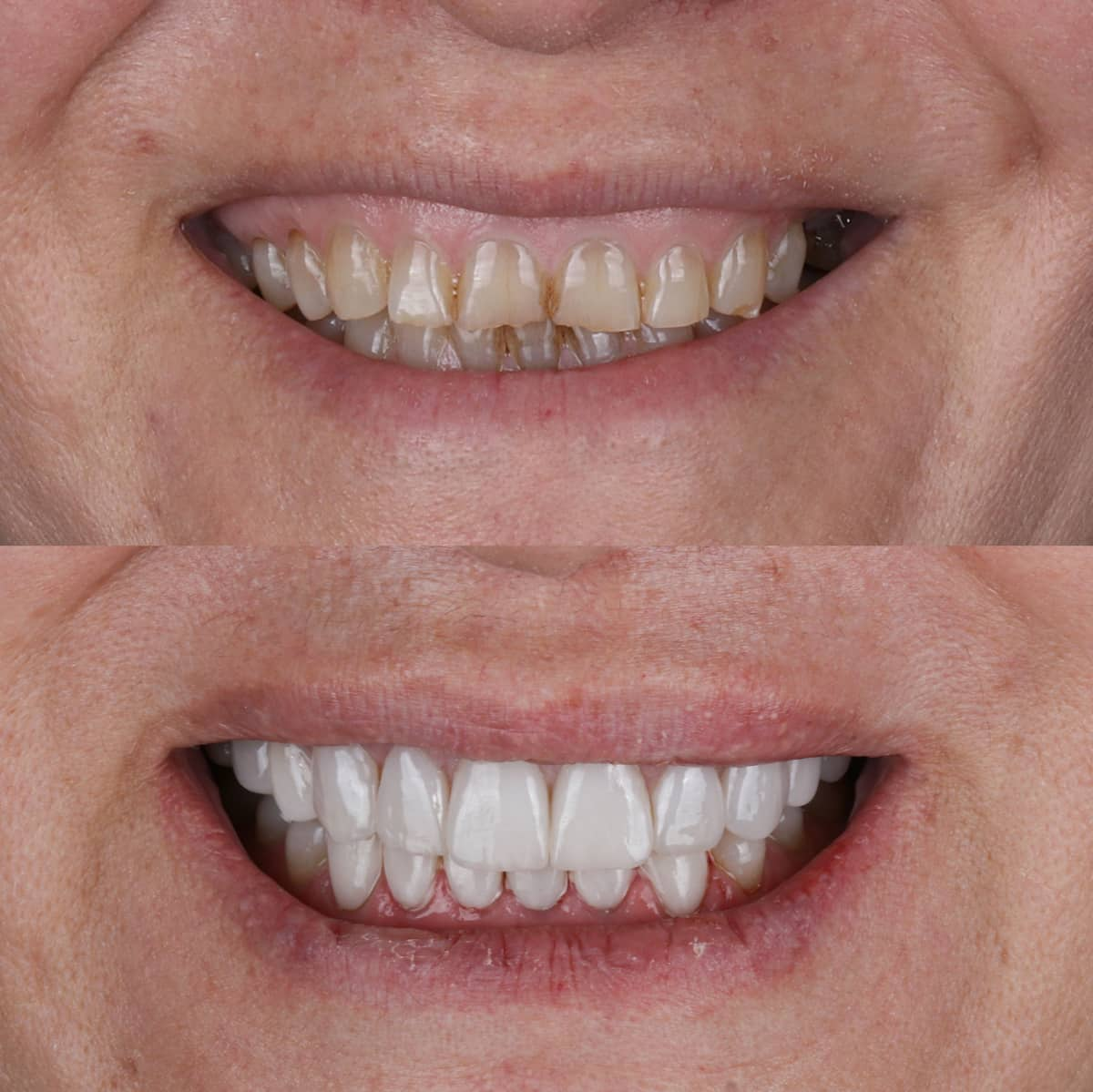Dental Crowns for Older Adults: Strengthening Teeth & Preventing Future Damage

Supporting Ageing Smiles
As we age, our teeth naturally become more vulnerable to wear, cracks, and general weakening. Years of chewing, past dental work, and common conditions like dry mouth or grinding can all contribute to a smile that needs extra support. For older adults, especially those in aged care or with limited access to dental clinics, protecting existing teeth becomes even more important.
Dental crowns play a key role in preserving oral health during the later stages of life. By strengthening weakened teeth and helping to prevent further damage, crowns offer a practical, long-term solution that supports both comfort and confidence.
 Common Dental Issues in Older Adults
Common Dental Issues in Older Adults
With age, it’s common for teeth to show signs of wear and tear. Many older adults experience cracks, chips, or thinning enamel simply from years of everyday use. Others may have large or failing fillings that no longer provide adequate support. In some cases, teeth may become brittle due to changes in saliva production, medications, or medical conditions.
Bite problems can also emerge when one or more teeth are lost or weakened, leading to uneven pressure across the mouth. This imbalance can put excessive force on certain teeth, increasing the risk of fractures or additional dental complications. Left unaddressed, these issues can impact not just oral health, but also overall wellbeing, nutrition, and comfort.
What Are Dental Crowns and How Do They Help?
A dental crown is a custom-made cap that covers and protects a damaged or weakened tooth. It restores the tooth’s strength, shape, and appearance while preventing further deterioration. Crowns are commonly used when a tooth is cracked, heavily filled, or has undergone a root canal—situations where the natural structure is no longer strong enough on its own.
For older adults, crowns provide a reliable way to extend the life of existing teeth and reduce the likelihood of more complex dental issues. They allow patients to chew more comfortably, speak with ease, and maintain a natural-looking smile.
Crowns are typically made from durable materials such as porcelain or zirconia, which are strong enough to withstand daily use while blending in naturally with the rest of the teeth.

Balancing the Bite – Preventing Further Damage
One of the lesser-known benefits of dental crowns is their ability to help balance the bite. When certain teeth are weakened or missing, the pressure from chewing can shift to neighbouring teeth, increasing the risk of those teeth cracking or wearing down. This kind of strain can quietly lead to bigger problems if not addressed early.
By reinforcing a weakened tooth with a crown, the chewing forces are more evenly distributed across the mouth. This reduces pressure on surrounding teeth, helping to protect them from fractures and prevent uneven wear. For older adults who may already have compromised dental structures, this added stability can make a significant difference in long-term oral health.
Why Crowns Are Ideal for Older Adults
Dental crowns offer a practical and often less invasive option for restoring teeth in older adults. Rather than extracting a damaged tooth or resorting to more complex procedures, a crown allows patients to retain their natural tooth structure while reinforcing it for long-term function.
Crowns are especially helpful in aged care settings, where mobility and access to dental clinics may be limited. By stabilising teeth and improving bite alignment, crowns contribute to easier eating, clearer speech, and better overall comfort. They also play a role in preserving dignity and confidence, particularly for those who may already feel vulnerable about their health or appearance.
For seniors, crowns are a smart investment in both oral health and quality of life.
When Is a Crown Recommended?
Crowns are commonly recommended when a tooth is too damaged or weakened to be restored with a standard filling. For older adults, this often includes teeth that have:
- Undergone root canal therapy
- Large or failing fillings that compromise the tooth’s structure
- Cracks or fractures that could worsen without reinforcement
- Significant wear from teeth grinding (bruxism) or acid erosion
Crowns may also be used as part of a broader treatment plan to improve function and comfort, especially in patients who have multiple worn or missing teeth. In these cases, crowns help re-establish a balanced bite and reduce the risk of further dental complications.
 Our Approach to Crowns in Aged Care Dentistry
Our Approach to Crowns in Aged Care Dentistry
At Aged Care Dentistry, we understand the unique needs of older adults and provide gentle, tailored dental care in the comfort of aged care facilities or private residences. Our mobile dental team is equipped to assess, plan, and deliver crown treatments without the need for travel, making it easier for patients with limited mobility or complex health needs.
We take the time to evaluate each patient’s situation, working closely with family members, care staff, and other healthcare providers to ensure that crown treatment is appropriate and beneficial. Our focus is always on preserving existing teeth wherever possible, reducing discomfort, and improving long-term oral function.
Every crown we place is carefully designed for durability, comfort, and a natural look—supporting both oral health and overall wellbeing.
Supporting Long-Term Oral Health in Later Life
Dental crowns offer more than just cosmetic improvement—they play a vital role in protecting weakened teeth, balancing bite forces, and preventing further damage. For older adults, especially those in aged care settings, crowns can make everyday tasks like eating and speaking more comfortable, while supporting long-term oral health.
If you or a loved one is experiencing tooth wear, cracks, or discomfort, our mobile dental team is here to help. We provide gentle, in-home care tailored to the needs of seniors, including dental assessments and crown treatments where appropriate.
To learn more or schedule a consultation, contact Aged Care Dentistry today.
📞 (08) 6558 1889
📧 info@agedcaredentistry.com.au
 Common Dental Issues in Older Adults
Common Dental Issues in Older Adults Our Approach to Crowns in Aged Care Dentistry
Our Approach to Crowns in Aged Care Dentistry